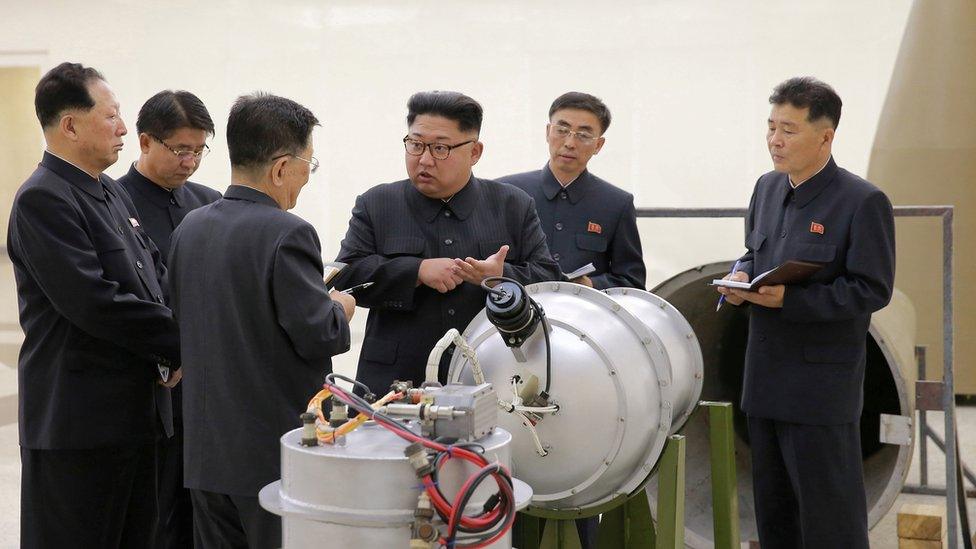US-North Korea: Trump says summit with Kim is back on
- Published
Donald Trump: ‘It’s a get-to-know-you situation’
Donald Trump's summit with Kim Jong-un in Singapore on 12 June is back on, the US president says, a week after it was scrapped.
Mr Trump made the announcement after talks with a senior North Korean envoy at the White House.
The envoy, General Kim Yong-chol, hand-delivered a letter from the North Korean leader to President Trump.
Mr Trump at first said the letter was "very interesting" but later said he had not yet opened it.
He also said the issue of formally ending the Korean War would be on the table in Singapore.
The 1950-53 conflict only ended with a truce, not a final peace treaty.
"We'll be meeting on June 12th in Singapore. It went very well," President Trump told reporters on the White House lawn.
"We've got to know their people very well," he added.
Mr Trump cautioned that the summit might not achieve a final deal on the North's controversial nuclear programme.
US-North Korea: Trump gets an unusually large letter
"I never said it goes in one meeting. I think it's going to be a process, but the relationships are building and that's very positive," he said.
The historic meeting between Mr Trump and Kim Jong-un would be the first between sitting US and North Korean leaders. President Trump has offered to help rebuild the North's economy if it scraps its nuclear weapons. Kim Jong-un says he is committed to "denuclearisation" in some form but his precise demands are unclear.

Two weeks of on-off negotiations
16 May: North Korea says it may pull out of the summit, accusing the US of reckless statements and sinister intentions
24 May: Donald Trump cancels the summit, blaming "tremendous anger and open hostility" from the North
26 May: Kim Jong-un and South Korea's Moon Jae-in meet for surprise talks at the demilitarised border between the two countries
1 June: Senior North Korean envoy General Kim Yong-chol delivers a letter from Mr Kim in person at the White House. Mr Trump says the summit on 12 June is back on

Singapore has been getting ready for the US-North Korea summit
Gen Kim Yong-chol's visit to Washington came a day after he met US Secretary of State Mike Pompeo in New York.
Mr Pompeo described their talks about denuclearisation "substantive".
"President Trump and I believe Chairman Kim is the kind of leader who can make those kinds of decisions. And that in the coming weeks and months, we will have the opportunity to test whether or not this is the case," he said.
Mr Kim's letter reportedly expresses his interest in meeting without making any significant concessions or threats in regards to denuclearisation, the Wall Street Journal reports, external, citing a foreign government official who was briefed on the contents.

Trump the diplomat basks in the spotlight
Analysis by Anthony Zurcher, BBC News, Washington
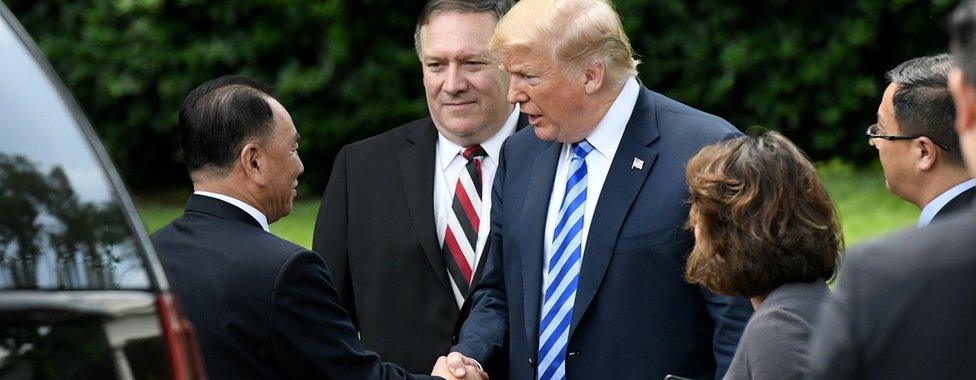
This is Trump diplomacy, unfolding in real time. If it's not what the world expects, if it's statecraft as we've never seen it before, that's because this is a president unlike any the American people have elected before.
From "fire and fury" to a relationship "as good as it's been in a long time". The summit is on, then it's off, now it's on again. The president, as witnessed by his impromptu 16 minute question-and-answer session with gathered reporters, is basking in the world's spotlight as he conducts these historic negotiations.
Passing legislation is hard. Coping with the Russia investigation is infuriating. Welcoming to the White House the "second most powerful man in North Korea", as Mr Trump called Kim Yong-chol, is comparatively easy.
Even as Mr Trump heralded the progress being made, he was downplaying expectations for the upcoming summit, which he said was never planned to end in some grand signing ceremony.
For the moment, it appears the Singapore meeting will be only a first step - a chance for a historic photo-op and a hope for breakthroughs to come.
For a president who many thought last year was barrelling toward war, however, that appears more than enough.

How did we get here?
North Korea has carried out six nuclear tests and numerous tests of ballistic missiles, all the while maintaining a barrage of belligerent rhetoric against its enemies, particularly the US.
The nuclear word Trump and Kim can't agree on
It claims to have developed a nuclear weapon small enough to be carried by a long-range missile, although this remains unverified.
Previous attempts to negotiate with North Korea have failed, but earlier this year Pyongyang held direct talks with Seoul and the two Korean leaders held a historic summit in April.
With relations thawing, the US has pledged to help rebuild North Korea's economy if it agrees to give up its nuclear weapons.
But the US wants denuclearisation first and it is unclear whether Mr Kim will agree to fully abandon his nuclear arsenal.

- Published17 January 2019
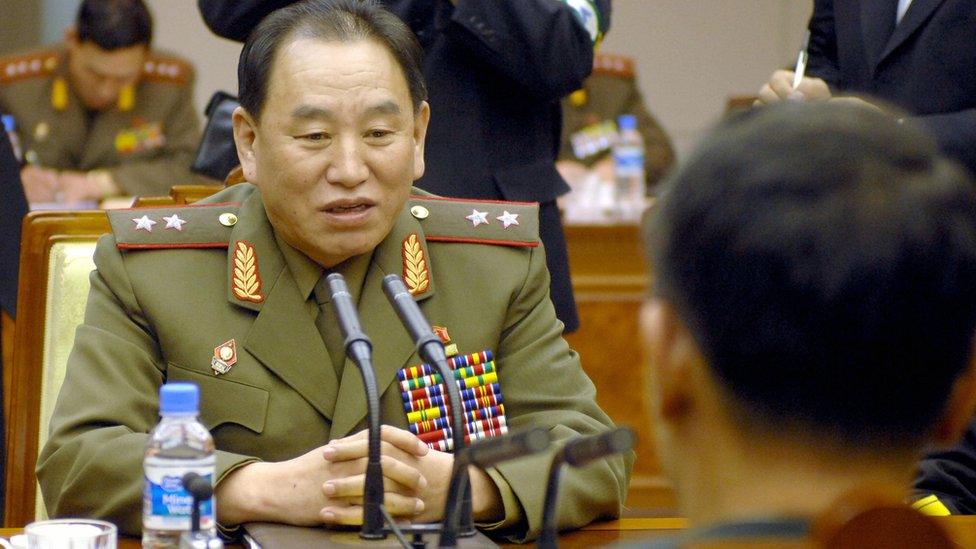
- Published23 February 2018
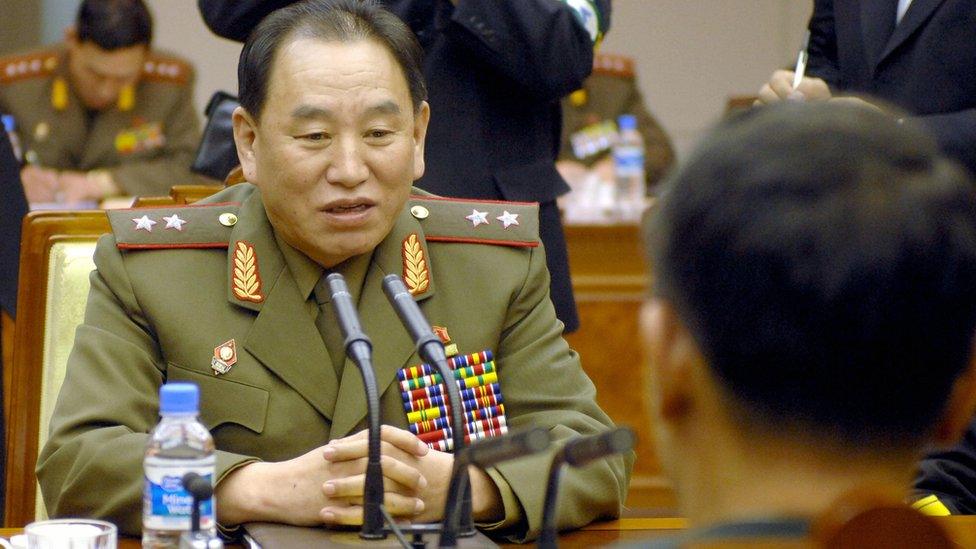
- Published25 July 2019
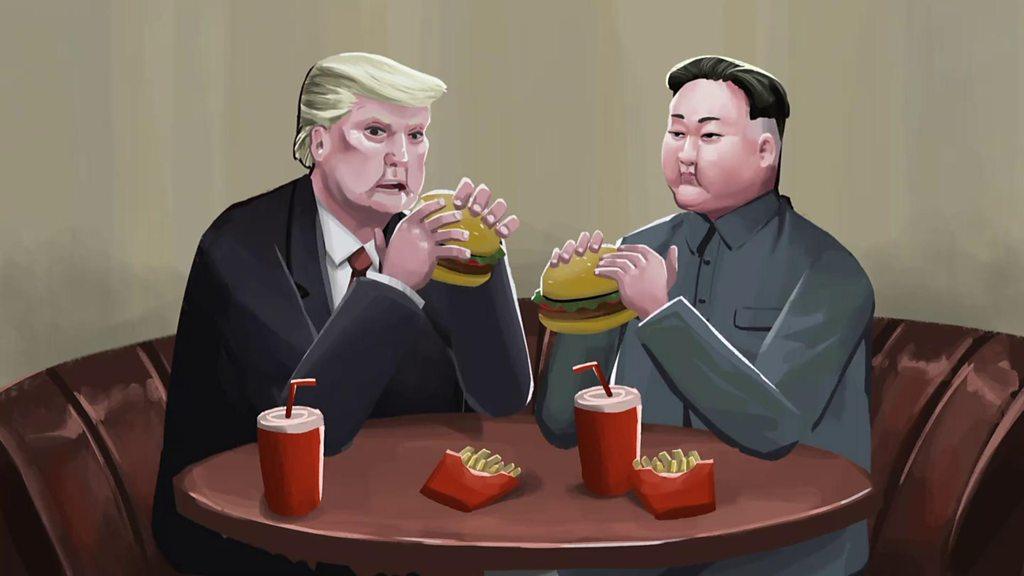
- Published9 March 2018
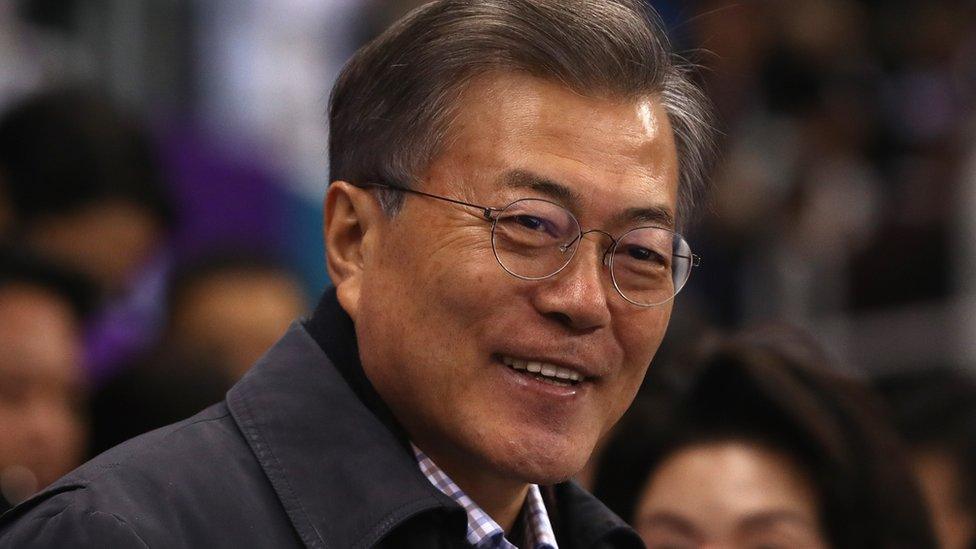
- Published21 April 2020
